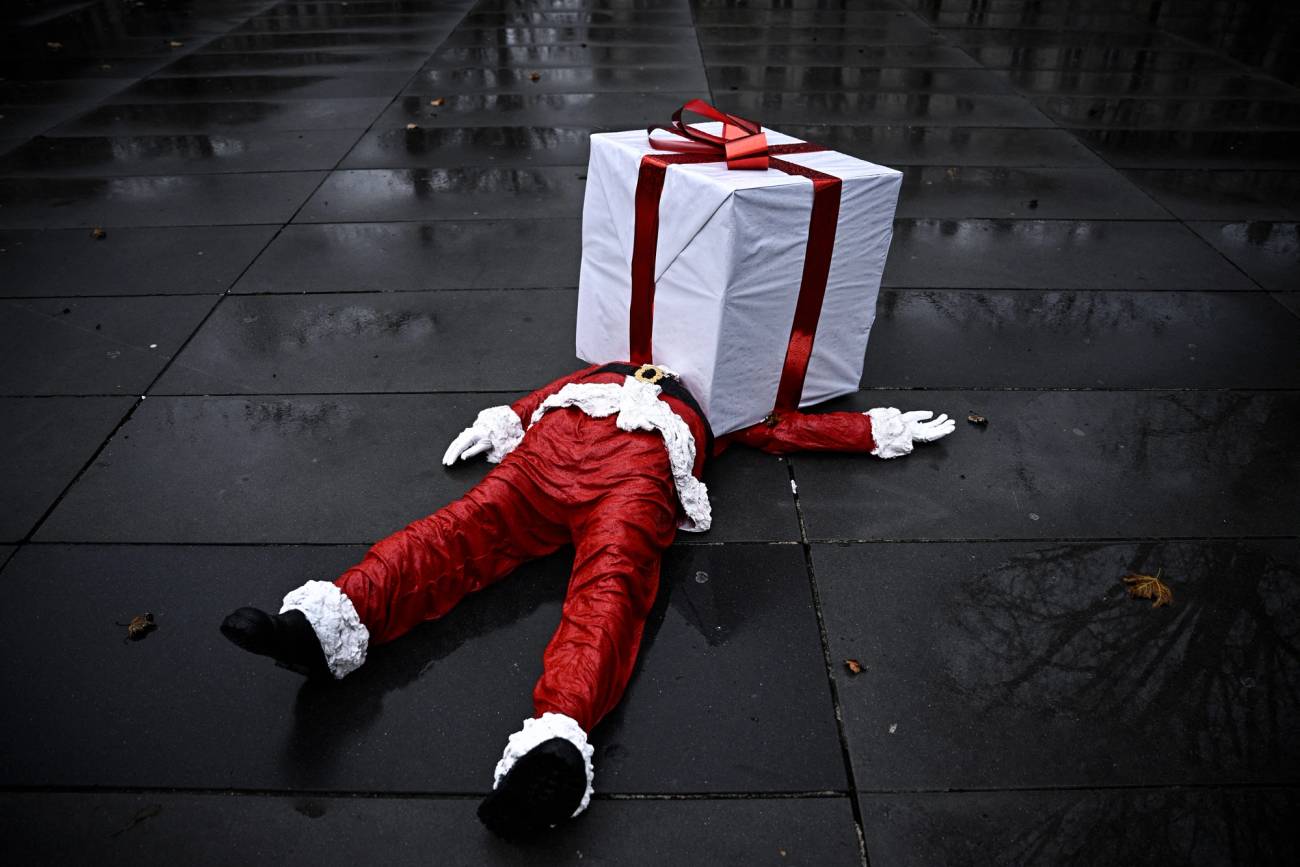
 Ważna książka i ważne spotkanie
Ważna książka i ważne spotkanie
Stanisław Obirek
Książkę Jana Grabowskiego „Wybielanie. Polska wobec Zagłady Żydów” przeczytałem uważnie i dwukrotnie. Najpierw w angielskim oryginale, a po raz drugi po ukazaniu się polskiego tłumaczenia. Posłuchałem też rozmowy z Autorem z redaktorem angielskiej wersji, która ukazała się w Jewish Quarterly w sierpniu 2024 roku (https://jewishquarterly.com/essay/2024/08/whitewash). Książkę przedyskutowałem również ze studentami w ramach seminarium poświęconego historii Żydów w USA. Wielu z nich miało o niej krytyczne zdanie, co tylko utwierdziło mnie w przekonaniu jej znaczenia.
Książka zaraz po ukazaniu się wersji angielskiej została zaatakowana bezpardonowo przez polskie media prawicowe, a prym w nagonce wiódł redaktor Paweł Lisicki, któremu można wszystko zarzucić, ale na pewno nie znajomość faktów historycznych związanych z eksterminacja europejskich Żydów i oczytanie w obszernej literaturze przedmiotu. Od dziesięcioleci bowiem otorbił się w kokonie swoich antysemickich obsesji i każda nowa próba wybicia go z tego przeklętego kręgu owocuje kolejnymi oskarżeniami pod adresem badaczy, którzy demaskują jego uprzedzenia. Jak się wydaje, podobnie jak przy innych okazjach to on wyznaczy trajektorie recepcji „Wybielania” przez środowiska nacjonalistyczne.
Przeczytałem też obszerne omówienie książki „Wybielanie” przez Jarosława Kurskiego w Gazecie Wyborczej z dnia 6 stycznia. Który zasadniczo zgodził się z tezami choć sformułował trzy zastrzeżenia, które wydają mi się marginalne i nieistotne. Kurski uważa mianowicie, że autor „Wybielania” powinien ostrożniej formułować swoje oskarżenia pod adresem Polaków współdziałających w Zagładzie Żydów, bo przecież nie wszyscy wydawali i mordowali, tak jakby Grabowski takie oskarżenie w istocie wysunął. Ja go nie zauważyłem. Wprost przeciwnie, wspomina tych, którzy ich ratowali z narażeniem życia. Drugie zastrzeżenie wydaje mi się wręcz kuriozalne. Kurski twierdzi, ze Grabowski nie ma prawa zabraniać czcić Sprawiedliwych wśród narodów świata, bo już wystarczający było wokół nich milczenia i strachu ich samych przed społecznym ostracyzmem. Znowu zastrzeżenie nietrafione, bo jedyne czego domaga się Grabowski to uwzględnienia kontekstu w jakim dochodziło do bohaterskich czynów ochrony zagrożonych śmiercią Żydów. No i trzecie związane z postulatem wyjęcia spod polskiej kurateli miejsc naznaczonych śmiercią Żydów, jak Auschwitz czy Treblinka i poddanie ich międzynarodowej opiece, która wykluczyłyby, a w każdym razie poważnie ograniczyła nadużycia polskiej polityki historycznej, która prowadzi do dezinformacji i manipulacji faktami historycznymi. Ten postulat jest jak najbardziej ważny, gdyż wykluczyłby niepotrzebne konflikty i napięcia związane z rożna pamięcią o Holokauście.
Moim zdaniem to książka równie istotna, jak opublikowana w 2000 roku książka „Sąsiedzi” Jana Tomasza Grossa, która wybiła polskie społeczeństwo z poczucia niewinności i roli ofiary. Tak jak Gross wskazał na współudział polskich sąsiadów w wymordowaniu Żydów z Jedwabnego, tak Grabowski zdemaskował mechanizm struktur instytucji państwowych w fałszowaniu obrazu Holokaustu. Po wstrząsie „Sąsiadów” ówczesny episkopat zdobył się na gest przeprosin i akt pokutny do jakiego doszło w 2001 roku w kościele Wszystkich Świętych w Warszawie. Dziś z perspektywy ćwierćwiecza wiemy, ze był to gest pusty. Nie poszły za nim żadne konkrety, a badacze Zagłady właśnie przez media kościelne i prawicowe są oskarżani o kalanie własnego gniazda. A tymczasem to właśnie katolicyzm wraz z innymi wyznaniami chrześcijańskimi ponosi główną odpowiedzialność za ukształtowanie antyjudaistycznej i antysemickiej mentalności w nominalnie chrześcijańskiej Europie .
W środę 8 stycznia o godz. 19.00 odbędzie się w Warszawie spotkanie z Janem Grabowskim (https://idmn.pl/), z którym dyskutował będzie znany badacz uprzedzeń i stereotypów Michał Bilewicz. Pozostaje mieć nadzieje, ze będzie otwarciem prawdziwej debaty na temat tego, co można zrobić by przeszłość nie dzieliła, a zaczęła łączyć jako wspólny namysł nad sposobami przepracowania Zagłady polskich Żydów jako traumy nas wszystkich.
Trzeba mieć nadzieje, że tym razem na spotkanie nie zawita europoseł G. Braun, którego wybryk na innym wykładzie profesora Jana Grabowskiego dał asumpt do napisania „Wybielania”. Oby wandalizm ludzi podobnych do Brauna przestał być wizytówka Polski w zmaganiach z demonami przeszłości zastąpiony przez rzetelną debatę naukową.
Jan Grabowski, „Wybielanie. Polska wobec Zagłady Żydów”, Vis a Vis Etiuda, Kraków 2024.
 Stanisław Obirek, – (ur. 21 sierpnia 1956 w Tomaszowie Lubelskim) – teolog, historyk, antropolog kultury, profesor nauk humanistycznych, profesor zwyczajny Uniwersytetu Warszawskiego, były jezuita.
Stanisław Obirek, – (ur. 21 sierpnia 1956 w Tomaszowie Lubelskim) – teolog, historyk, antropolog kultury, profesor nauk humanistycznych, profesor zwyczajny Uniwersytetu Warszawskiego, były jezuita.
Zawartość publikowanych artykułów i materiałów nie reprezentuje poglądów ani opinii Reunion’68,
ani też webmastera Blogu Reunion’68, chyba ze jest to wyraźnie zaznaczone.
Twoje uwagi, linki, własne artykuły lub wiadomości prześlij na adres:
webmaster@reunion68.com



